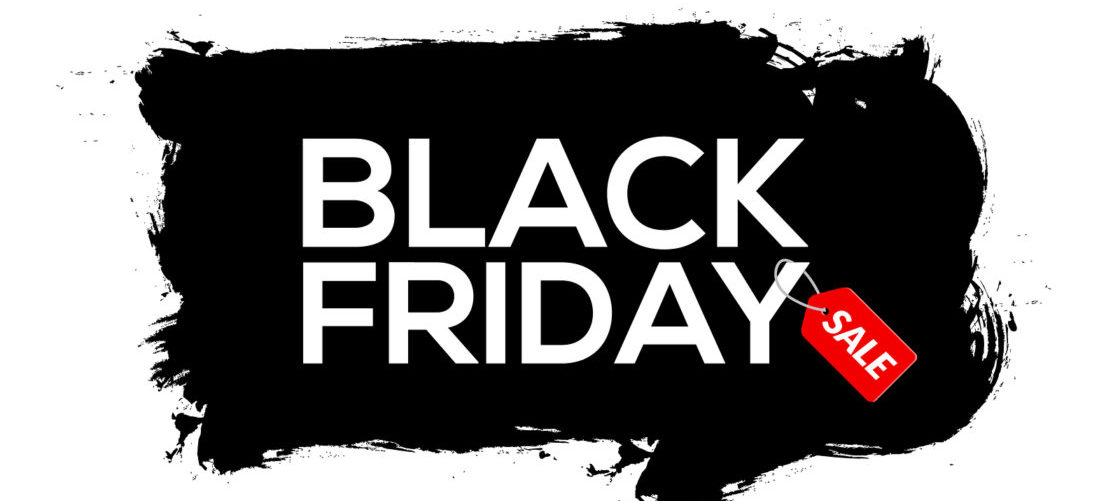In America, and much of the West, we associate Freedom with the free market. The numerous choices we have when we visit a grocery store or a shopping mall stands as a testament to the superiority of the market economy. The wealth of goods we have available for our purchase can only increase our general welfare and happiness, so the story goes.
At no point in the year is this attitude more apparent than the holiday season. Of course, the holidays are a special time, filled with wonderful opportunities to buy gifts for loved ones, and increasingly, ourselves. But we believe excessive consumer culture causes people to look for happiness in the wrong places. So that’s why we’re officially calling bullshit on Black Friday.
Consumer culture and the holidays
Late last night and early this morning shopping malls and big-box stores opened their doors, perhaps as soon as the clock strikes midnight. Hundreds of eager customers rush in, race through the aisles and grab the most desirable products off the shelves. Parking lots fill quickly, and traffic reaches unbearable limits.
 The online world now has its own equivalent of this madness — Cyber Monday. Both days are a race to find the best possible deal. On the other side of the cash register, a different, yet similar race has intensified over the years.
The online world now has its own equivalent of this madness — Cyber Monday. Both days are a race to find the best possible deal. On the other side of the cash register, a different, yet similar race has intensified over the years.
Since the term Black Friday was first coined, during the 1960s, retailers have pushed to open their doors earlier and earlier on the day after Thanksgiving. In the early 2000s, opening times moved from 6 a.m. to as early as 4 a.m. for some companies. Larger stores started opening at midnight in 2011, and now, places like Walmart do holiday business on Thanksgiving Day itself.
Early opening times mean more opportunities to make profits. And consumers fall right in line — quite literally in many cases, as they brave the elements while waiting for stores to open their doors. Inevitably, the crowd gets frustrated and aggressive.
What are we chasing?
But is this frenzied rush to increase profits and get the first look at top products really Freedom? Sure, Black Friday offers us the chance to amass commodities, often with the expectation that we will return to the same store later in the holiday season to score another deal. But this reality has a downside.
 Inevitably, consumers spend a great deal of money. After a large shopping spree, they feel the impact in many places. For example, as recently as 2016, 40 percent of shoppers reported overspending on Black Friday and throughout the holiday season. Ironically, this overspending happens while they’re supposed to be on the hunt for “great deals.”
Inevitably, consumers spend a great deal of money. After a large shopping spree, they feel the impact in many places. For example, as recently as 2016, 40 percent of shoppers reported overspending on Black Friday and throughout the holiday season. Ironically, this overspending happens while they’re supposed to be on the hunt for “great deals.”
Furthermore, about a quarter of all Black Friday shoppers in the U.S. end up spending so much money that paying off the associated debts takes three months. This excessive spending has certainly contributed to the more than $1 trillion in outstanding credit card debt Americans owe.
The situation of excessive debts and overspending begs the question: Are these proposed deals really worth all the frenzy? That may be a subjective question. But at the very least, Black Friday shows us that, when faced with the opportunity to spend lavishly, we forget how to Live Within Our Means.
Finding Freedom amidst the frenzy
For some, the phrase Living With Your Means sounds like a rejection of life’s pleasures. But that cannot be further from the truth. The phrase does not imply that we should refrain from treating ourselves or our loved ones to something special during the holidays. It does, however, signal that everyone’s financial situation is different. Without budgeting far in advance, relatively few people have the means to rush out to the store and fill their shopping carts with a dozen or more items in a single day.
 Of course, Living Within Our Means is much easier when we understand how much “stuff” we really need to be happy. This amount is different for every individual. As much as the big-box stores want to convince us all to rush out the door and buy the latest electronics, clothing and household items every year, not all people need these goods. Although you’d never guess that if you watch television commercials during the month of November.
Of course, Living Within Our Means is much easier when we understand how much “stuff” we really need to be happy. This amount is different for every individual. As much as the big-box stores want to convince us all to rush out the door and buy the latest electronics, clothing and household items every year, not all people need these goods. Although you’d never guess that if you watch television commercials during the month of November.
Understanding our own capacities and desires is one of the first steps to Financial Freedom. The frenzied rush of Black Friday makes us forget these elements that underpin our sanity and peace of mind. Freedom is not fully encapsulated in a free market that offers us choices. Rather, it’s a highly personal notion that varies widely from person-to-person. Before joining the mad rush, think about whether or not a Black Friday shopping spree is helping or hurting your prospects for Financial Freedom.
The views and opinions expressed are those of the guest author and do not necessarily reflect the views and opinions of MindShift.money.
image credit: Bigstock/kolonko

